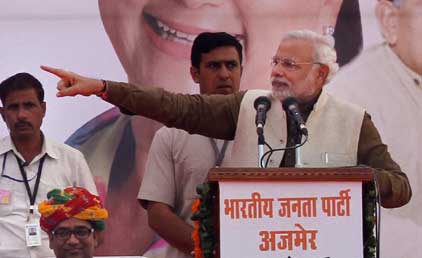
21st Law Commission of India constituted
The Commission will be established from Sept 1, 2015 to Aug 31, 2018.
The 21st Law Commission will consist of:-
(i) a full-time Chairperson;
(ii) four full-time Members (including a Member-Secretary);
(iii) Secretary, Department of Legal Affairs as ex off do Member;
(iv) Secretary, Legislative Department as ex offcio Member; and
(v) not more than five part-time Members.
The Law Commission shall, on a reference made to it by the Central Government or suo-motu, undertake research in law and review of existing laws in India for making reforms therein and enacting new legislations.
It shall also undertake studies and research for bringing reforms in the justice delivery systems for elimination of delay in procedures, speedy disposal of cases, reduction in cost of litigation among others.
The other functions of the Law Commission shall, inter-alia, include:-
a) identification of laws which are no longer relevant and recommending for the repeal of obsolete and unnecessary enactments;
b) suggesting enactment of new legislations as may be necessary to implement the Directive Principles and to attain the objectives set out in the Preamble of the Constitution;
c) considering and conveying to the Government its views on any subject relating to law and judicial administration that may be specifically referred to it by the Government through Ministry of Law and Justice (Department of Legal Affairs);
d) considering the requests for providing research to any foreign countries as may be referred to it by the Government through Ministry of Law & Justice (Department of Legal Affairs);
e) preparing and submitting to the Central Government, from time to time, reports on all issues, matters, studies and research undertaken by it and recommending in such reports for effective measures to be taken by the Union or any State; and
f) performing such other functions as may be assigned to it by the Central Government from time to time.
Support Our Journalism
We cannot do without you.. your contribution supports unbiased journalism
IBNS is not driven by any ism- not wokeism, not racism, not skewed secularism, not hyper right-wing or left liberal ideals, nor by any hardline religious beliefs or hyper nationalism. We want to serve you good old objective news, as they are. We do not judge or preach. We let people decide for themselves. We only try to present factual and well-sourced news.






